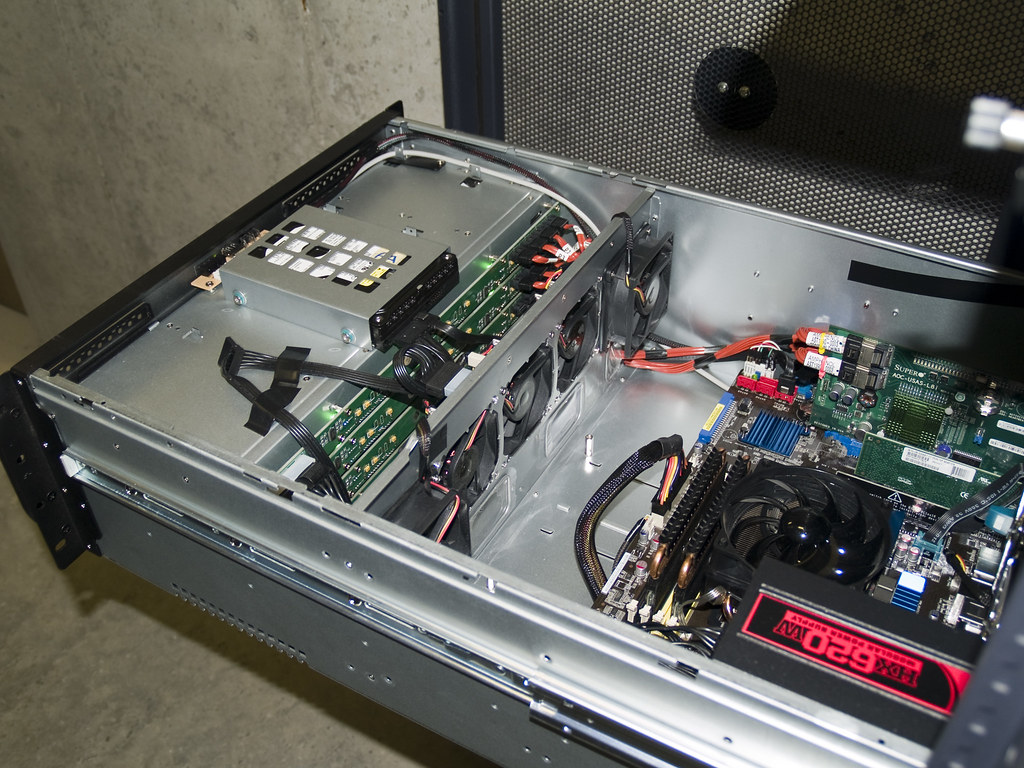At the local college radio station we're looking to get a good quality network storage system. We just recently lost quite a bit of data as the Netgear ReadyNAS it was stored on (with no backups) died (as my appeals to get a proper backup solution went unheard).
It seems to me like an iSCSI SAN is a good approach to this, however, I very well could be wrong. We need a device that can store around 7-10TB of data, as we are planning on digitizing our entire music library, plus this will hold all of our archives (around 1 - 1.5TB per year). I'm hoping that we can use Solaris as the OS, however there are a few linux fans in the house. All of these have iSCSI support, however they do not all support the same filesystems so they would have to use separate LUNs.
Right now iSCSI is looking good to me. If we end up using Solaris, I can store the zones on the SAN, then in the event of a server failure, I can just remount them on another box and be up and running again. However, what would be better for the san array? Are we better off building a system based around OpenFiler, or should we get an array like a Dell MD3000i or the HP MSA2300i? Also, there is no way that we can afford to buy hard drives directly from Dell or HP. Is there any way we can get an array from HP or Dell or Sun, and then just put drives from NewEgg in there? I understand that it won't be supported, but is it in any way possible (we will have backups in place, of course, so don't worry about that)
Thank you in advance.
It seems to me like an iSCSI SAN is a good approach to this, however, I very well could be wrong. We need a device that can store around 7-10TB of data, as we are planning on digitizing our entire music library, plus this will hold all of our archives (around 1 - 1.5TB per year). I'm hoping that we can use Solaris as the OS, however there are a few linux fans in the house. All of these have iSCSI support, however they do not all support the same filesystems so they would have to use separate LUNs.
Right now iSCSI is looking good to me. If we end up using Solaris, I can store the zones on the SAN, then in the event of a server failure, I can just remount them on another box and be up and running again. However, what would be better for the san array? Are we better off building a system based around OpenFiler, or should we get an array like a Dell MD3000i or the HP MSA2300i? Also, there is no way that we can afford to buy hard drives directly from Dell or HP. Is there any way we can get an array from HP or Dell or Sun, and then just put drives from NewEgg in there? I understand that it won't be supported, but is it in any way possible (we will have backups in place, of course, so don't worry about that)
Thank you in advance.
![[H]ard|Forum](/styles/hardforum/xenforo/logo_dark.png)

